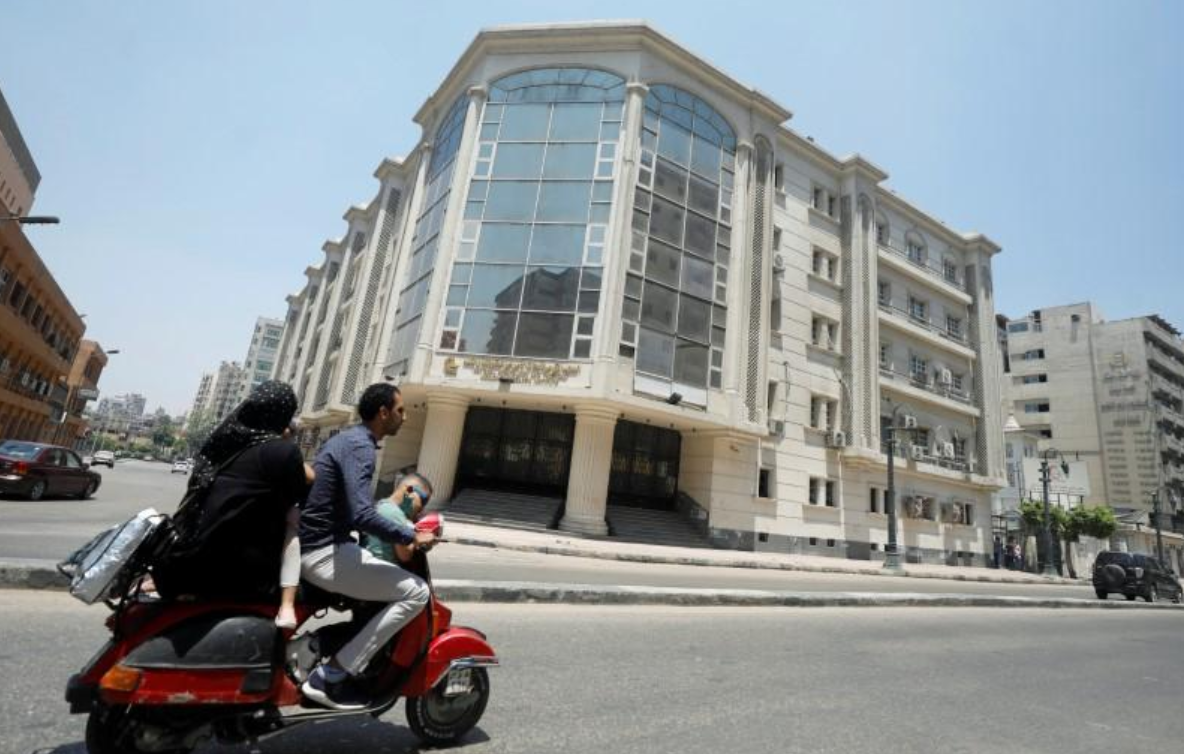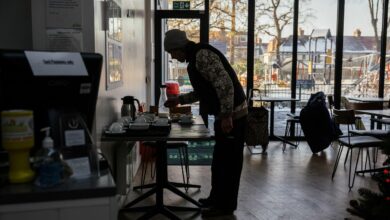For more than a month, it has been difficult and expensive for Egyptians to obtain butane gas cylinders, a household staple used to heat water and gas stoves. The government has promised that the butane gas shortage is coming to an end, and there are signs that the shortage is ending in some places. But the scene at distribution points around Cairo tells a different story.
Those desperate for gas have described the process of obtaining their cylinders as "hellish."
"In the Kit Kat neighborhood, where I live, it’s like a massacre around the main distribution point. You go through hell in order to fill the cylinder," said Arafa, a middle-aged man who refused to give his last name. Arafa travels across Cairo to get his butane cylinders filled.
According to the Ministry of Social Solidarity, each cylinder should contain 31.5 kilograms of butane, but under current conditions it is impossible to ensure that the cylinders are filled with the right amount of gas, said Arafa.
The Ministry of Social Solidarity has now drawn on its reserve supply of butane to increase the number of cylinders for sale at the subsidized price of LE3. Minister of Social Solidarity Ali el-Meselhy told the local press over the weekend that the gas shortage should end within ten days. Sources at the Ministry of Petroleum told Al-Masry Al-Youm that the severe shortage was a result of harbor closures triggered by bad weather.
El-Meselhy said his ministry has already dispatched 6000 extra cylinders to Fayoum, with "carriers of the gas having already arrived two days earlier in the Suez Canal, and this supply will be available on the market very soon."
Despite provision of extra supplies, it is unclear if a steady supply can be sustained in the long-run. The Ministry of Social Solidarity has so far failed to ensure that subsidized gas cylinders do not end up in the hands of black market sellers.
El-Meselhy said that he is discussing with the Ministry of Interior ways to ensure that gas suppliers do not hoard cylinders or sell them to the black market. All trucks carrying butane gas are surrounded by police until they reach the distribution point, he added.
Even with inspectors from the social solidarity and interior ministries overseeing the distribution, they say it’s almost impossible to control those who return for re-fills and sell cylinders on the black market.
"As much as possible, we try to prevent those coming in here several times or doing rounds filling cylinders in other official distribution centers around town. But it’s not our job to study faces and make sure that these people don’t return again on the same day," said Abdo Ibrahim Kishk, the head of the commodities supply management of Cairo.
"So yes, it’s possible that some of the supply goes to those who do not deserve it, but what can we do about this?" Kishk added as he surveyed the long line at the Ein el-Seira butane gas distribution center, which sells the cylinders at LE2.5 each for each citizen, or LE3 if the citizen "doesn’t have the right amount at hand, because giving them change would delay the queues more," according to one distributor at the center.
Large trucks carrying the cylinders could be seen entering the center at the same time as a mass of microbuses arrived, carrying people from around Cairo and the suburbs where the supply is much shorter. Violence, sometimes involving knives and clubs, has been reported at distribution points over the past week. Last Wednesday, a 23-year-old distributor was killed in a fight after someone attempted to steal his butane cylinder.
"If not for the heavy presence of police, we would have been eaten alive in this place," said Nabil, a Cairo resident waiting to obtain his butane supply.
Arafa said that he is also only allowed to fill one cylinder. "So for instance I have an elderly neighbor who needs a refill, but I can’t help her. In the past we used to swap the empty ones in the areas where we live. They used to come right to our doors."
As Arafa stood in line, a few inspectors announced to the crowds that extra supplies were available "at the back of the warehouse" if they couldn’t stand in line for long. When an inspector was asked about the price of the cylinders, he replied that it was LE5; he then told another inquirer that it was LE4.
"See it’s always like that," said Arafa. "Even the inspectors don’t know the right price. And why would they sell the extra cylinders for LE5 anyway?" Arguments ensued over the right price between a few of the customers and the inspectors, who were obviously wary of the presence of the Al-Masry Al-Youm reporter on site.
"I don’t know why they come here. They should go back to the areas where they live–there are supplies there, but they choose to come here," said one inspector.
Kishk said that supplies are steady. "On some days we get 7000 cylinders, but the citizens are the main reason the black market is still thriving, because they don’t report illegal sellers and in their need they buy from those sellers as well to fill reserve cylinders."
"Look around you–we have 15 inspectors on site," said Kishk. "We have campaigns all the time. Minister Ali el-Meselhy has given out his private phone number on Al-Beit Beitak [TV show] in order to receive complaints, but we can’t work alone."
Nearby, a microbus carrying several women stood waiting. Inside, one of the women, Um Ayman, said that she and her neighbors had paid LE55 to come to Ein el-Seira from Kafr Tarmas, near Giza’s el-Eshreen Street, where violence in butane gas queues led to injuries.
"We split the cost among us, because otherwise we’ll have to endure the chaos [around distribution points] where we live and people trying to sell the cylinders to us for LE50 and more. We’ve carried extra cylinders for neighbors and friends and we hope to fill these too. But it might be impossible with this," she said, pointing to the inspectors standing near the lines.




